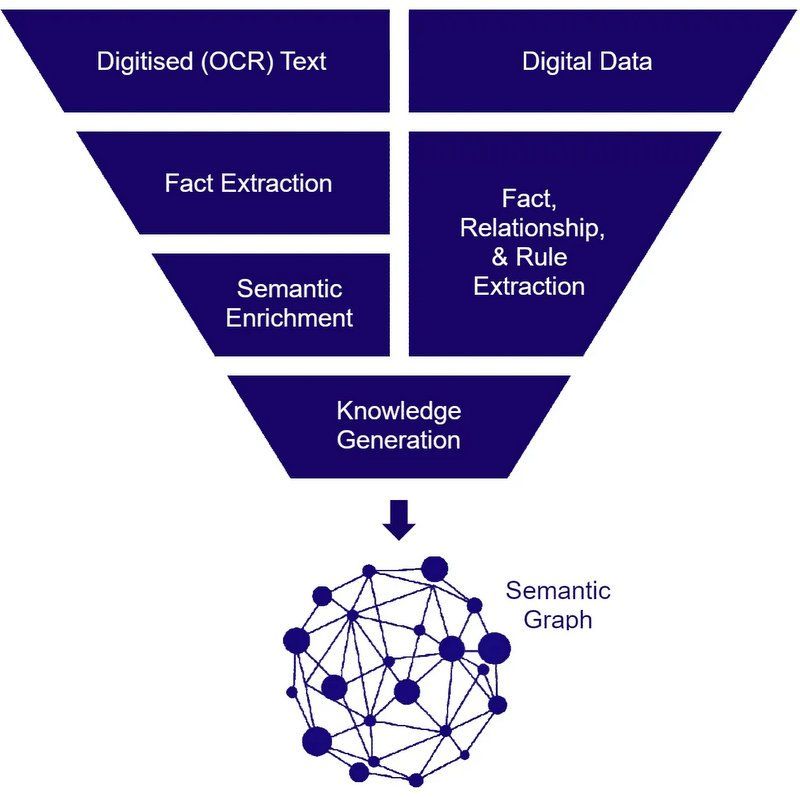About Us - Cognitive Software Group.
Cognitive Software Group, or “CSG”, is a group of companies that has spent eight years researching the needs of the next generation of computing.
In 2012 we decided to broaden our interest to include Artificial Intelligence, “AI”. We had come to believe that the volume of data being generated was overwhelming the ability of humans to make use of it and even worse, useful data was being hidden by useless data, the latter now known as noisy data.
We were also the owner of intellectual property (patents, patent applications, software) for which we had sought patent protection.
There were indications that our intellectual property described technologies that might be essential components of any future widespread deployment of AI.
Experts were talking about an
"intelligent web”, a next generation of the World Wide Web that would itself be intelligent and therefore less dependent on human management.
“I have a dream for the Web [in which computers] become capable of analysing all the data on the Web, the content, links and transactions between people and computers. A Semantic Web, which should make this possible, has yet to emerge, but when it does, the day-to-day mechanisms of trade, bureaucracy and our daily lives will be handled by machines talking to machines. The intelligent agents that people have touted for ages will finally materialise."
Professor Sir Tim Berners-Lee, (1999).
In retrospect, we took a big risk.
We decided to research, invent and develop technologies that could facilitate a “Semantic Web”, an intelligent next generation of the World Wide Web that, in 2012, was not a lot more than a “dream” of the most important figure in the history of the Internet Age, Professor Sir Tim Berners-Lee, the inventor of the World Wide Web.
Creativity is intelligence having fun.
Since 2012 we have developed AI products for intelligently extracting useful data from large repositories of data.
These repositories could include databases of various types and large electronic libraries of documents. They may or may not contain noisy data, but they are typically too large for a human being to utilise productively.
It is important to note here that when we talk about AI, the state of the art for AI is nowhere near as intelligent as a human being. It is true that since the beginning of the modern computer age in the 1950’s, the computer industry has turned hype into a new art form, but few experts would argue that we are anywhere close to building computers that can match the intelligence of a human.
Where computers do have an advantage over humans is that they can read very large amounts of data much faster than a human, and they can remember all of it for ever. They can
find relationships between all that data
using software techniques known as reasoning, in this way mimicking human reasoning, but at a basic level of machine intelligence.
Using our
cognitiveAI
platform, we have been able to clearly demonstrate that AI can help....
Patent Examiners.
Patent examiners more quickly and accurately identify “prior art” in patent applications that indicate a lack of inventiveness and novelty before the applicant spends large amounts of time and money attempting to get patent protection for something that may later be disqualified.
View our patents.
Plant Operators.
Plant operators in very large industrial manufacturing environments such as oil and gas refineries, water purification processing and other large-scale industrial automation environments react more quickly to unplanned outage events.
Financial Advisors.
Financial advisors ensure that proposals to clients are compliant with all aspects of legal, regulatory and policy practice.
Medical Researchers.
Medical researchers find hidden connections between scientific findings contained in hundreds of thousands of documents, database and social media to help accelerate the development of treatments, vaccines and potential cures.
We have used the above and more to enhance our User Experience and functionality.
They have helped us understand the key technologies in AI.
– the neural networks and natural language processing technologies that read and extract useful data from electronic documents.
- the data transformation technologies that extract from structured data repositories such as databases, XLM documents and CSV files.
– the
Semantic Graph databases
that store knowledge in a form that computers can understand by themselves.
– the
RDF
and
Ontology
data models that underpin Semantic Graphs.


